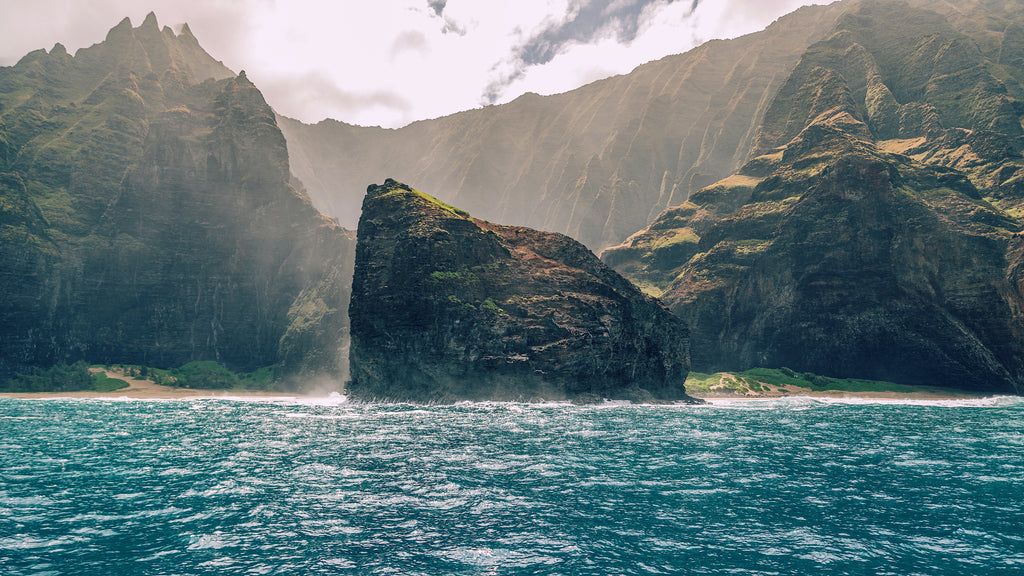
Unveiling the Mystery: What Continent is Hawaii In?
Share
Picture yourself on a beach in Hawaii – the gentle sway of palm trees, the sound of ukulele in the air, and the mesmerizing view of the Pacific. Hawaii, the ultimate tropical paradise, has long been a dream destination for travelers seeking an escape from the mundane. But, here's a curious thought that might have crossed your mind while sipping on a coconut by the shore: What continent does Hawaii belong to? Let's embark on a journey to unravel this geographical enigma.
Table of Contents
The Geographical Enigma of Hawaii
Hawaii's Remote Location
In the vast canvas of the Pacific Ocean, Hawaii stands as a lone masterpiece. It's not just a destination; it's a collection of volcanic islands sprinkled like emerald gems amidst the vastness of the ocean. The isolation of Hawaii is not just a geographical quirk; it's a key ingredient in what makes this place so unique.
Hawaii's charm lies in its distant allure, far from the hustle and bustle of mainland life. It's almost like the Pacific Ocean decided to play hide-and-seek and hid this tropical wonder in its embrace. So, when you find yourself in Hawaii, you're not just on a vacation – you're on a remote escapade.
Subheading 1.2: The Pacific Connection Now, let's delve into the roots of Hawaii's identity. Picture the ancient Polynesians navigating the vastness of the Pacific, guided only by the stars and their unwavering spirit of exploration. These seafaring pioneers discovered Hawaii, a land that would become a cultural melting pot with influences from Tahiti, Marquesas, and beyond.
Hawaii's connection to the Pacific is not just a historical footnote; it's a living, breathing essence that permeates the islands' culture. The dances, the music, and even the laid-back "Aloha" spirit all find their roots in this vast expanse of ocean that cradles Hawaii in its azure arms.
The Continental Conundrum
Hawaii and North America
So, let's address the elephant (or should I say, the hula-dancing dolphin?) in the room – the misconception that Hawaii is somehow tethered to North America. Well, grab your compass and brace yourself for a surprise because Hawaii is not, I repeat, not part of North America. I know, it's a plot twist that even Hollywood would envy.
While the United States has a pretty solid claim to Hawaii as its 50th state, geographically speaking, it's not rubbing shoulders with the likes of California or New York. In fact, it's a bit of a loner in the middle of the Pacific, maintaining a respectable distance from the continental drama.
Oceania Affiliation
Now, let's set sail into the waters of Oceania. If you're wondering which continent Hawaii shares a metaphorical lei with, it's Oceania. Yes, Hawaii's heart beats in sync with the rhythm of the Pacific, and it proudly identifies as part of the Oceania region.
But what makes Hawaii an honorary Oceania member? It's not just the geographical coordinates. It's the cultural tapestry woven with threads from Polynesia that binds Hawaii to Oceania. So, while it might be tempting to slot Hawaii into the continental categories we learned in elementary school, the reality is far more intriguing – it's a Pacific paradise with a cultural passport to Oceania.
Hawaii's Unique Identity
Hawaii's Political Affiliation
Now, let's navigate through the political waters surrounding Hawaii. Here's the scoop: Hawaii is not just an exotic getaway; it's also the 50th state of the United States. But, and it's a sizable "but," being a U.S. state doesn't automatically plant it on the North American continent. Think of it more like a tropical outpost of the Stars and Stripes, a place where 'Aloha' meets 'Stars and Bars.'
Thanks for visiting our blog, are you planing to travel to Hawaii? Check out our eSIM Hawaii & Hawaii Sim Card.
Hawaii's unique political status adds an extra layer to its identity. It's a blend of Pacific vibes and the red, white, and blue – a combination that makes it stand out in the roster of states. So, while Hawaii proudly sports the U.S. flag, it does so with a certain Pacific flair that sets it apart.

Let's dive a little deeper, shall we? Beneath the azure waves that kiss Hawaii's shores lies a geological secret: the Pacific Plate connection. Hawaii's islands are born from the fiery embrace of underwater volcanic activity, courtesy of the Pacific Plate.
Picture tectonic plates doing their slow dance beneath the ocean's surface, and suddenly, Hawaii's remote charm starts to make geological sense. The islands are essentially the result of a hotspot – a volcanic hotspot, not a trendy vacation spot. So, when you're walking on the beaches of Hawaii, you're strolling on land shaped by the Earth's fiery forces. It's like Mother Nature's way of saying, "Welcome to the Pacific, where even the ground beneath your feet has a story to tell."
Exploring Hawaii's Beauty
Natural Wonders
Ah, the beauty of Hawaii – a symphony of nature that plays out across volcanic landscapes and pristine beaches. It's not just a destination; it's a canvas painted with the strokes of fiery red craters and lush green foliage. Picture this: standing on the rim of a volcanic crater, feeling the earth's energy beneath your feet. Hawaii's natural wonders are not merely scenic backdrops; they're immersive experiences that transport you to another realm.
From the iconic silhouette of Diamond Head on Oahu to the otherworldly landscapes of the Big Island, Hawaii's natural wonders are a testament to the volcanic forces that have shaped this paradise. Each island boasts its own unique allure, from the lush rainforests of Kauai to the lunar-like landscapes of Maui's Haleakalā. It's a visual feast that goes beyond the typical postcard imagery, inviting you to explore the diverse ecosystems that thrive in this Pacific Eden.
Cultural Richness
Now, let's shift our gaze from the natural wonders to the vibrant tapestry of cultures that define Hawaii. The hula dancers, the rhythmic beats of the ukulele, and the aromatic flavors of traditional Hawaiian cuisine – it's a celebration of diversity that echoes through the islands.
Hawaii's cultural richness is a testament to its history as a melting pot of influences. The ancient chants and dances of the Polynesians mingle with the more recent contributions of Asian, European, and American cultures. The result? A cultural fusion that's as diverse as the coral reefs that surround the islands.
As you wander through the historic sites of Honolulu or attend a traditional luau, you'll find that Hawaii's cultural identity is not just a thing of the past; it's a living, breathing force that shapes everyday life. So, when you step onto the shores of Waikiki or hike through the lush valleys of Molokai, you're not just witnessing nature's wonders – you're immersing yourself in a cultural mosaic that adds depth to the paradise experience. Before you take off make sure to check with local government of the travel status.
In the final stretch, let's tackle some burning questions that often arise when contemplating Hawaii's place in the world. The FAQs, if you will, designed to shed light on the finer details of this Pacific gem. Ready for some quickfire knowledge? Let's dive into the FAQs.
Frequently Asked Questions
Is Hawaii part of North America?
No, Hawaii is not part of North America. It may be the 50th state of the United States, but geographically, it stands apart in the vastness of the Pacific.
Which continent is closest to Hawaii?
Asia takes the crown for proximity, but it's still a considerable distance away. Hawaii's oceanic isolation is part of its allure.
Why is Hawaii considered part of Oceania?
Hawaii's ties to Oceania are rooted in its Polynesian heritage and its location in the Pacific. It's not just a dot on the map; it's a cultural bridge to Oceania.
How did Hawaii become a U.S. state if it's not on the mainland?
Hawaii joined the union in 1959 after a history entwined with economic and political connections to the U.S.
Are there any land connections between Hawaii and other continents?
No, Hawaii is a true island paradise, surrounded by water and devoid of any land connections to other continents.








